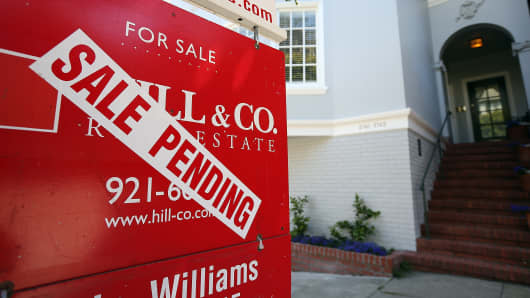Japan's public pension fund, the world's largest with a pool of $1.1 trillion, may start buying real estate to boost returns in a move that could involve tens of billions pouring into cities such as London and Paris, property consultant CBRE said.
Any such plan by Japan's Government Pension Investment Fund (GPIF) would come as the country's government urges public funds to increase returns to help revive the economy, part of the game-changing economic policies of Prime Minister Shinzo Abe.
Earlier this month, the GPIF said it would shift away from bonds and into stocks to take on greater risk in the most significant shift in its asset allocation since 2006.
(Read More: Is the Nikkei's Rebound for Real?)
Property typically offers a higher yield, or rental income as a percentage of a property's value, than government bonds because it is seen as a riskier investment that takes longer to buy or sell and faces the risk of becoming empty.
As central banks keep interest rates historically low, many government bond yields offer little or no return, prompting some investors to shift into real estate.
"It is striking just how much larger GPIF is than any of the word's other pension funds ... Therefore, if it ultimately expands its remit to include international real estate, it could become a very significant player," CBRE said.
No-one at the GPIF could immediately be reached for comment outside regular Japanese business hours.
A typical real estate allocation for a fund entering the market would be 5 percent, growing to 10 percent, said Simon Barrowcliff at CBRE. That could mean up to $100 billion of deals in major global cities like London, Paris or New York.
(Read More: Is the Heat Off Asia's Hottest Property Markets?)
Overseas buyers from as far afield as Brazil and Azerbaijan spent 10.5 billion pounds ($16 billion) in the British capital last year, a 42 percent increase on 2011 that accounted for about a fifth of all commercial property deals by value in Europe.
Asian investors have parked billions of dollars in the relative safety of commercial property in major world cities since the financial crash, often unable to spend such large sums in their smaller home markets.
Rule changes in countries like Taiwan, China and Australia that free up investors to spend more on property means the flood of cash will increase, CBRE said. ($1 = 0.6498 British pounds)


